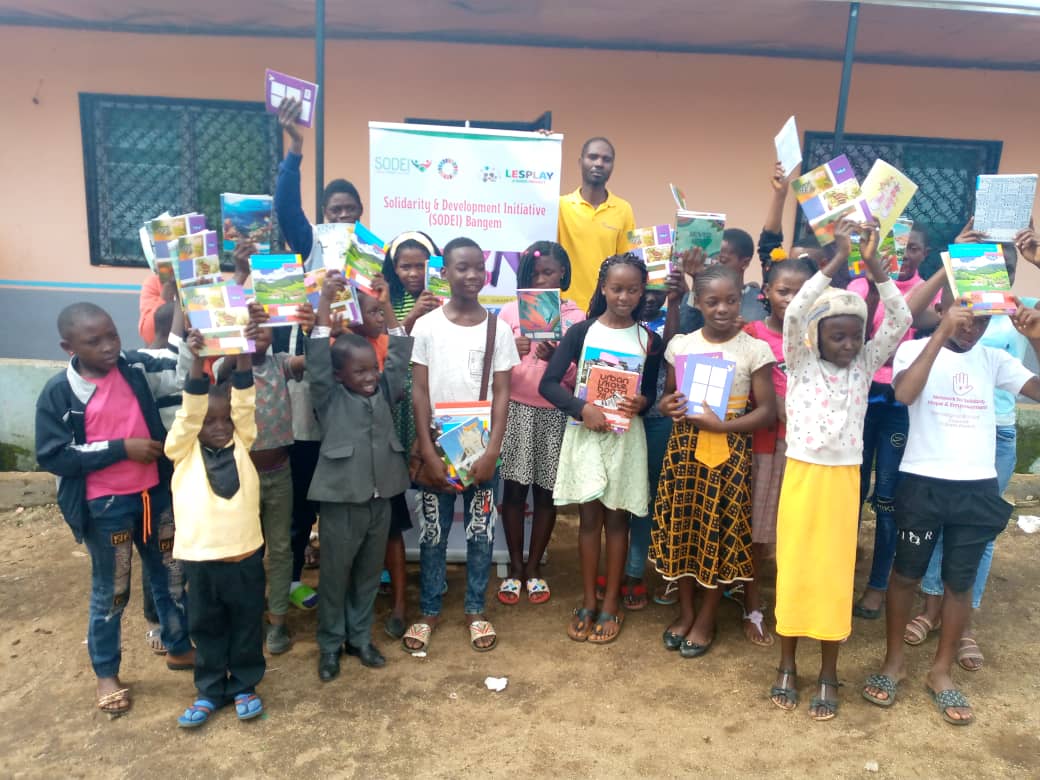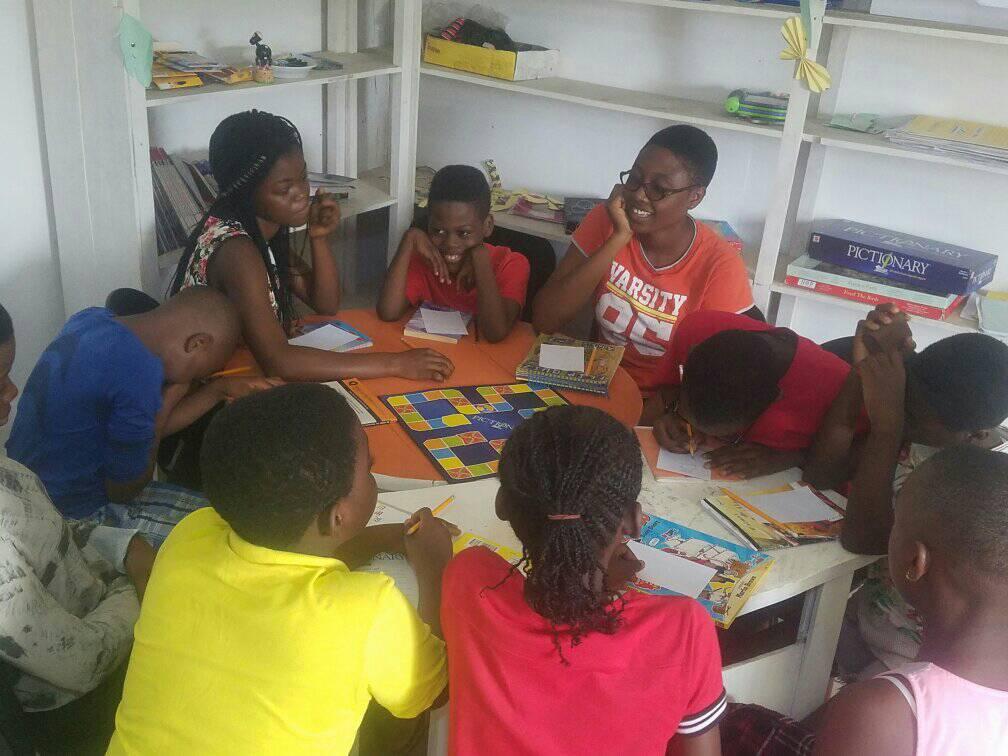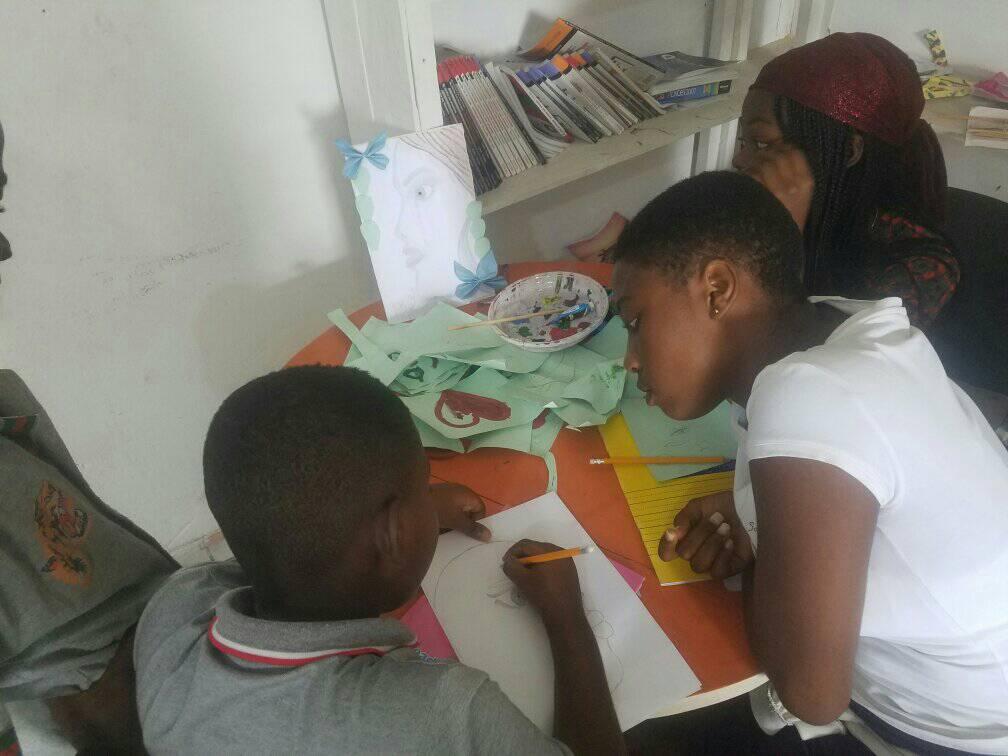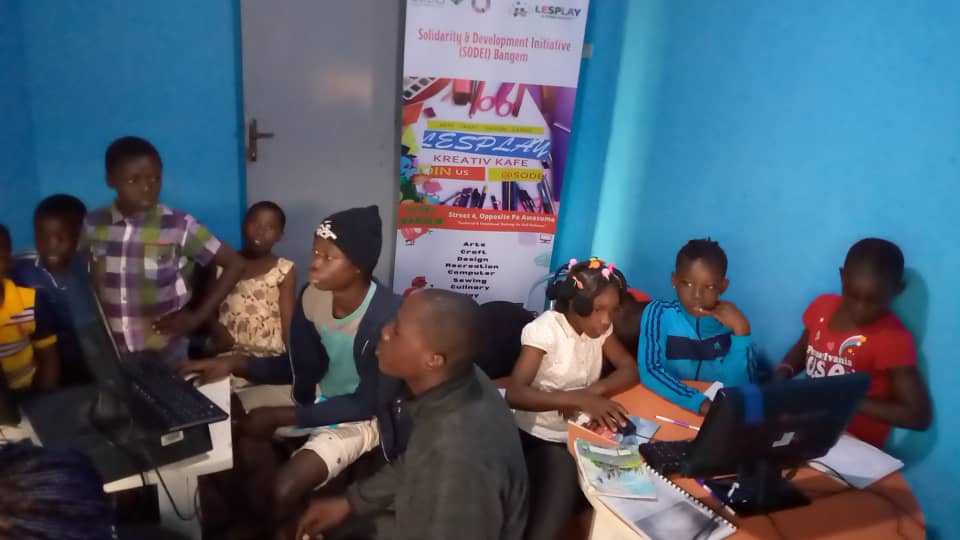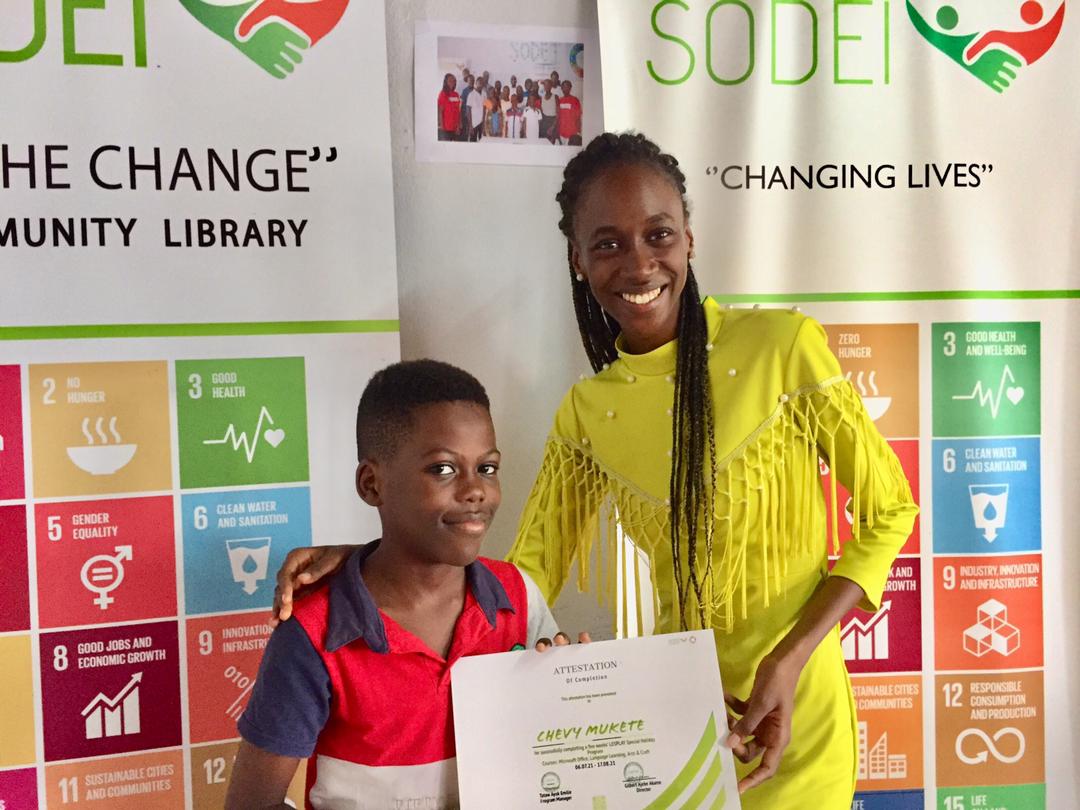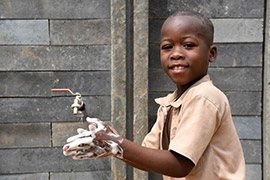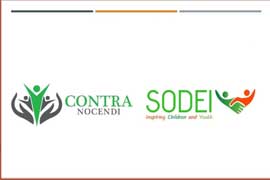LESPLAY: Children’s play during conflict and emergencies in Cameroon: A paper presented by SODEI’s Executive Director Gilbert Ajebe Akame, at the #PowerOfPlay Conference organised by the Children and Childhood Network of the University of Birmingham UK.
Background
For over 4 years, children in the English-speaking regions of Cameroon have experienced disruptions in normal functioning of school resulting mainly from this crisis. What is now known as the ‘Anglophone problem’, has its roots in Cameroon’s colonial history and heritage. Certain events in the early 1990s, including the emergence of multi-party politics and the 1993 all Anglophone Conference, marked the awaking of the Anglophone political consciousness. During the period after decolonisation, a series of events occurred leading up to the May 1972 referendum that saw the move from a Federal to a Unitary state. The complex historical developments are still at the centre of present-day challenges leading to the current conflict.[ii] Since the early 1990s, Anglophones have created pressure groups and used different methods and channels to push their agenda. The recent conflict started with a ‘sit-in strike’ initiated by lawyers on the 11 of October 2016 and later joined by teachers a month later. The action was aimed at protesting against perceived assimilation of the Anglophone education and legal traditions inherited from the British. Wider protests soon broke across the entire region against alleged systemic marginalization of the English-speaking minority and has since morphed into a complex socio-political conflict.
An asymmetrical conflict in nature, with a highly powerful, well equipped army on the one hand, and a complex web of non-state armed groups using guerrilla tactics on the other hand. This makes the situation highly fluid and risky for civilians, especially for children, women and girls. The International Crisis Group noted in 2019 that:
Violence has claimed around 3,000 lives, displaced half a million people within Cameroon, compelled another 40,000 to flee to Nigeria, deprived 700,000 children of schooling in their home areas and left one in three people in the Anglophone regions in need of humanitarian aid.[iii]
Traditional education and outdoor play activities have been seriously hampered. School children encountered during a need assessment conducted on behalf of SODEI in some primary and secondary schools repeatedly mentioned their desire to continue learning and leading a normal school life. In the last year the effects of Covid-19 have complicated the situation for the children whose lives were already devastated by the conflict.
Impact of the conflict on children’s learning and play
The conflict has had a severe impact on children’s play and their overall learning experience. By the end of 2019, UNICEF and OCHA reported that 90 percent of public primary schools and 77 percent of secondary schools in the Northwest and Southwest regions were closed or non-operational, and that 91 percent of school-aged children remained out of school. Despite the reported increase in school attendance as of January 2020, over 70% of children have been unable to attend school mostly due to parent’s fear for their safety as the conflict persists.[iv] School pupils and teachers have been targeted, kidnapped, maimed, and killed. An example is the incident where at least 7 children were killed, and more than a dozen injured, during a school attack at Mother Francisca International Bilingual Academy in Kumba, Southwest region in October 2020.[v]
The threats and violence have created an atmosphere of fear and continued to negatively affect children’s lives both in and out of school. The situation was further exacerbated by the global health emergency brought about by the COVID-19 pandemic. During this period of the conflict and emergency, we have observed resilience in children in this part of the country, most of whom have remained in the conflict affected regions and found ways to navigate through the challenging circumstances. Our LESPLAY project provided one of such platforms where children could interact with their peers, play and learn.
Needs Assessment
During a research I conducted with children from primary and secondary schools, they all expressed their desire to be in school, to learn and play with their peers. I worked together with some of the children involved in the research to create the LESPLAY platform.
The one thing that was common to all the children we interacted with was their desire to continue with their normal way of life. Interestingly, some said they were happy at the beginning of the conflict when they were asked to stay at home. It was an opportunity for them to run around and play with friends. However, they later realized it was not what they had imagined, having to stay at home for many months.
Alpha Little Learners Learning Ladder Academy (ALLLA)
ALLLA, a school for underprivileged children located in Mutengene in the Southwest region of Cameroon, participated in the needs assessment and served as the main point of inspiration for our LESPLAY project. Children in this school are from very poor backgrounds who are given the opportunity to learn though under very difficult conditions. They often lack the means to pay fees, buy learning material, uniforms and sometimes food. The founder of the school has a very inspiring story and a big heart; she relies on income from a small drug store to operate the school, including providing meals for the children. As it relates to play, I observed zero options for outdoor play and no designated playground. The surface around the school compound which could serve as play space is filled with rocks. Insecurity caused them to be confined in this very tiny space with a rough surface, limiting their ability to play
I also found that the entire school made up of 200+ pupils has just over a dozen play toys, mostly donated by visitors and well-wishers, which the children gather around to play.
Learn, Speak and Play (LESPLAY)
For the past year, my organisation SODEI has conducted a pilot of LESPLAY – a project aimed at providing an alternative for children experiencing disruptions in normal functioning of schools in the English-speaking regions of Cameroon, by engaging them through creative informal learning, participatory action, peer interaction and play.
The concept LESPLAY was inspired by three important rights of the child – the rights to education, participation, and play. I believe these rights of the child are interrelated and if provided for, work together to ensure the development of the child’s full potentials. LESPLAY is a SODEI concept and a platform for children and young persons to express themselves through creative arts and play. It applies a rights-based approach based on the UN Convention on the Rights of the Child (UNCRC).
Rights-Based Approach
Our LESPLAY platform provides the opportunity for children to develop their full potential through learning, interacting, and playing with their peers. This program provides an alternative for children experiencing disruptions in normal functioning of schools by engaging them in creative informal learning, participatory action, a space for peer interaction and play. LESPLAY was crafted based on three important UNCRC rights cited above. Article 28 recognizes the right of every child to education, meanwhile Article 29 provides for purposes of education which include among others: the development of the child’s personality, talents, mental abilities. It further provides that the goal of education is to “empower the child by developing his or her skills, learning and other capacities, human dignity, self-esteem and self-confidence.”
On its part, the UNCRC Article 12 provides for the right of the child who is capable of forming views to freely express those views in all matters affecting him or her and for those views to be given due weight in accordance with the age and maturity of the child. The Article forms one of the general principles for the interpretation and realization of all UNCRC rights which implies…
Article 31 of the UNCRC sets out children’s right to rest, leisure and play, cultural life and the arts (the ‘Article 31 rights’). Widely acknowledged as central to children’s health, development and happiness. UN General Comment 31 emphasises on the holistic understanding of Art 31 “Each element of Article 31 is mutually linked and reinforcing, and when realized, serves to enrich the lives of children”.
There is a clear interrelationship between the right to play, to education and to participation. Play is essential for children’s learning and development. Meanwhile, children’s ability to form views in line with Article 12 is predicated on their development of such capacities. The UNCRC recognises this interdependence as well the equal importance of the Convention rights including the rights to play, education and participation. While these are all separate rights enacted under the Convention, the UNCRC Committee has for example grouped the right to education with the right to play within the State Party reporting procedures, raising concerns mainly from researchers of children’s play.
Play and children’s learning & development
The UNCRC Committee has emphasized the importance of leisure and play for young people by referencing in multiple general comments (GC) including GC 7 and GC 9 prior to the enactment of GC 17. According to the Committee in GC 7:
The value of creative play and exploratory learning is widely recognized in early childhood education. Yet realizing the right to rest, leisure and play is often hindered by a shortage of opportunities for young children to meet, play and interact in child-centred, secure, supportive, stimulating and stress-free environments.
Social science research including childhood studies has established the importance of play in children’s learning and development and the relationship between play and children’s ability to develop themselves and their personality and to thrive. Play is a distinctive feature in early childhood: through play, children challenge their developing capacities (Lester & Russell, 2010).[vi] Skills across all developmental domains can be encouraged through play, including motor, cognitive and social and emotional skills. Educational games especially in the computer age can be an important part of learning (Bourdillon, 2011).[vii]
Implementation
SODEI Youth Resource Centre in Limbe Cameroon provides access to a space, indoor games, play books, drawing material and tutors. Sessions are held every Saturday with an average of 15 participants per session. LESPLAY participants visit public playgrounds for the kids and the LESPLAY Caravan brings play and creative arts activities to partner schools and nearby communities.
The children who take part in our LESPLAY sessions engage in creative arts and craft, play games among other activities. One hour between the sessions is designated for games and one Saturday of every month is designated entirely for play. We have at our disposal games including CHESS, SCRABBLE, LEGO, QUIZ. Much focus is placed on the chess game for its ability to improve on children’s learning, thinking and analytical skills.
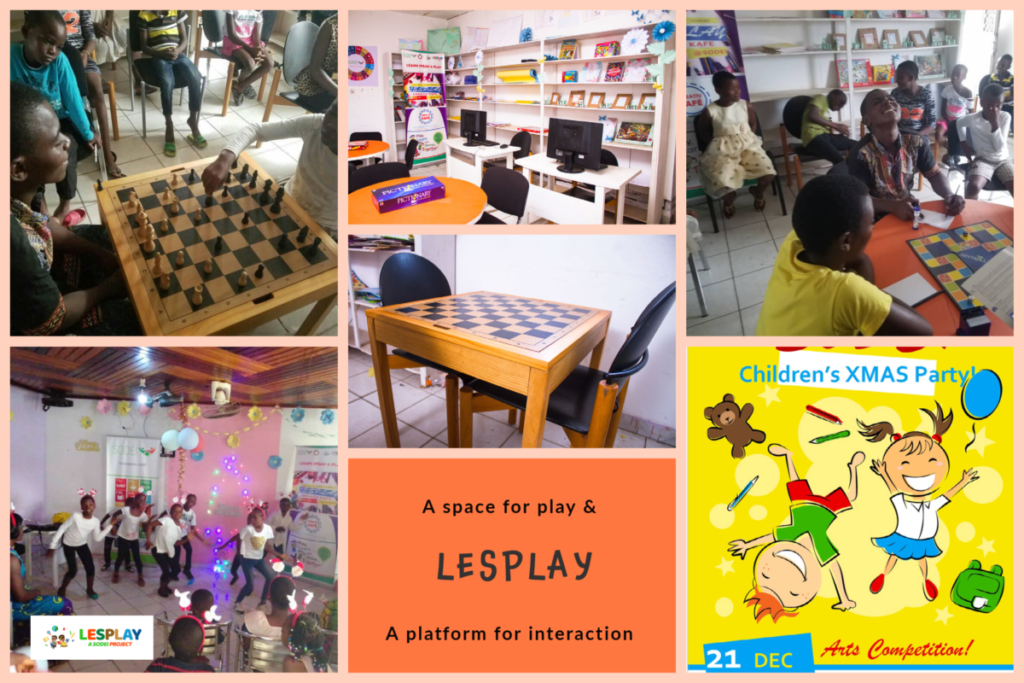
In the absence of child-friendly playgrounds, children attending schools in disadvantaged neighbourhoods play randomly around the school compound, sometimes on rugged terrain as is the case with ALLLA. The conflict and insecurity have affected the outdoor games which used to be the only available and affordable option for most children in the region. As a result, preference was given to indoor activities, which have also been disrupted by the outbreak of the Covid-19 pandemic living many children with limited play options. Our LESPLAY platform provided one of the viable alternatives for children to play and interact with the peers though on a very small scale and a limited impact.
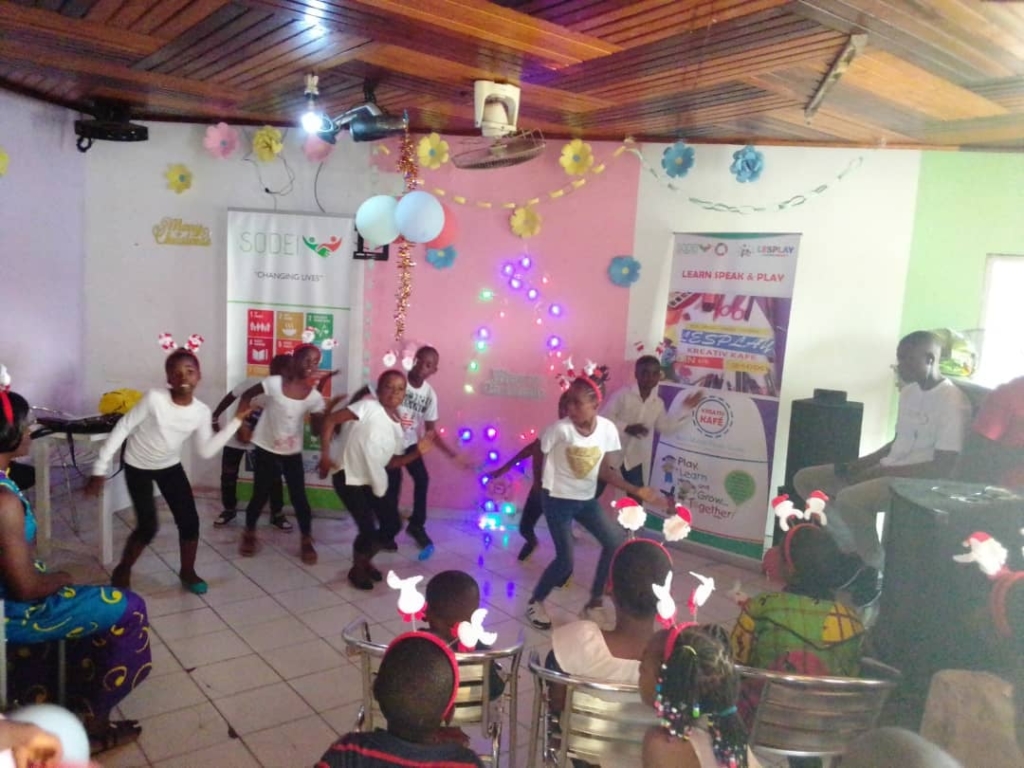
Impact
The LESPLAY platform brings together children from disadvantaged backgrounds affected by crisis, providing a useful opportunity for continuous learning, after-school learning support and play. Our youth resource centre provides a safe space and access to child-friendly indoor games. In 2020 we organised 30+ weekly sessions, benefiting 50+ children.
We have established a partnership with a school for disadvantaged children with over 150 pupils, with about 50 having so far participated in LESPLAY. The 2020 edition of the competition involved 10 young people competing in junior and senior categories. Contestants were to choose between two themes for their art – the rights of the child and protection of the environment. One of the winners in the senior category based his artwork on the right to education, highlighting the need for a safe and secure learning environment.
The LESPLAY pilot justified SODEI’s principled view of young people as having the ability to tap into their unique potentials and make a difference for themselves and communities when given the chance. The project also highlighted the importance of alternative and creative ways of acquiring and using knowledge, the significance of after-school learning support and play for young people’s development. The outbreak of the COVID-19 pandemic disrupted indoor activities and further shrank the space and opportunities for children’s play and leisure activities.
Despite this limitation, we were able to create an impact and make a difference for some young people during the challenging times, including on their mental health awareness. According to participants’ testimonies, LESPLAY provided a useful opportunity for them to continue learning, playing and interacting with friends, follow up effectively with schoolwork during school disruptions, and learn new and useful economic skills. One participant, Ivo, in his feedback on LESPLAY 2020, observed that his favourite LESPLAY sessions were those based on mental health, self-esteem and body image. He stated that: “I got to see the importance of our mental health just like our physical health, to best handle dilemmas. Again, I got to know we are all unique and special and no one has the right to put us down”.





